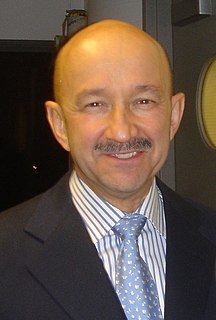A Quote by Nicholas Sparks
She couldn't think of anyone else who remotely resembled him. He was complicated, almost contradictory in so many ways, yet simple, a strangely erotic combination. On the surface he was a country boy, home from war, and he probably saw himself in those terms. Yet there was so much more to him. Perhaps it was the poetry that made him different, or perhaps it was the values his father had instilled in him, growing up. Either way, he seemed to savor life more fully than others appeared to, and that was what had first attracted her to him.
Quote Topics
Almost
Anyone
Anyone Else
Appeared
Attracted
Boy
Combination
Complicated
Contradictory
Country
Country Boy
Different
Either
Else
Erotic
Father
First
Fully
Growing
Growing Up
Had
Her
Him
Himself
His
Home
Instilled
Life
Made
Many
More
Much
Others
Perhaps
Poetry
Remotely
Savor
Saw
Seemed
She
Simple
Strangely
Surface
Terms
Than
Think
Those
Up
Values
War
Way
Ways
Related Quotes
She saw him the first day on board, and then her heart sank into her shoes as she realized at last how much she wanted him. No matter what his past was, no matter what he had done. Which was not to say that she would ever let him know, but only that he moved her chemically more than anyone she had ever met, that all other men seemed pale beside him.
There was a warmth of fury in his last phrases. He meant she loved him more than he her. Perhaps he could not love her. Perhaps she had not in herself that which he wanted. It was the deepest motive of her soul, this self-mistrust. It was so deep she dared neither realise nor acknowledge. Perhaps she was deficient. Like an infinitely subtle shame, it kept her always back. If it were so, she would do without him. She would never let herself want him. She would merely see.
His books were part of him. Each year of his life, it seemed, his books became more and more a part of him. This room, thirty by twenty feet, and the walls of shelves filled with books, had for him the murmuring of many voices. In the books of Herodotus, Tacitus, Rabelais, Thomas Browne, John Milton, and scores of others, he had found men of face and voice more real to him than many a man he had met for a smoke and a talk.
She rested her head against his and felt, for the first time, what she would often feel with him: a self-affection. He made her like herself. With him, she was at ease; her skin felt as though it was her right size.. It seemed so natural, to talk to him about odd things. She had never done that before. The trust, so sudden and yet so complete, and the intimacy, frightened her.. But now she could think only of all the things she yet wanted to tell him, wanted to do with him.
Or perhaps a widow found him and took him in: brought him an easy chair, changed his sweater every morning, shaved his face until the hair stopped growing, took him faithfully to bed with her every night, whispered sweet nothings into what was left of his ear, laughed with him over black coffee, cried with him over yellowing pictures, talked greenly about having kids of her own, began to miss him before she became sick, left him everything in her will, thought of only him as she died, always knew he was fiction but believed in him anyway.
He walked on without resting. He had a terrible longing for some distraction, but he did not know what to do, what to attempt. A new overwhelming sensation was gaining more and more mastery over him every moment; this was an immeasurable, almost physical, repulsion for everything surrounding him, an obstinate, malignant feeling of hatred. All who met him were loathsome to him - he loathed their faces, their movements, their gestures. If anyone had addressed him, he felt that he might have spat at him or bitten him... .
For here we are so blind and foolish that we never seek God until he, of his goodness, shows himself to us. It is when we do see something of him by his grace that we are stirred by that same grace to seek him, and with earnest longing to see still more of his blessedness. So I saw him and sought him; I had him and wanted him. It seems to me that this is and should be an experience common to us all.






































